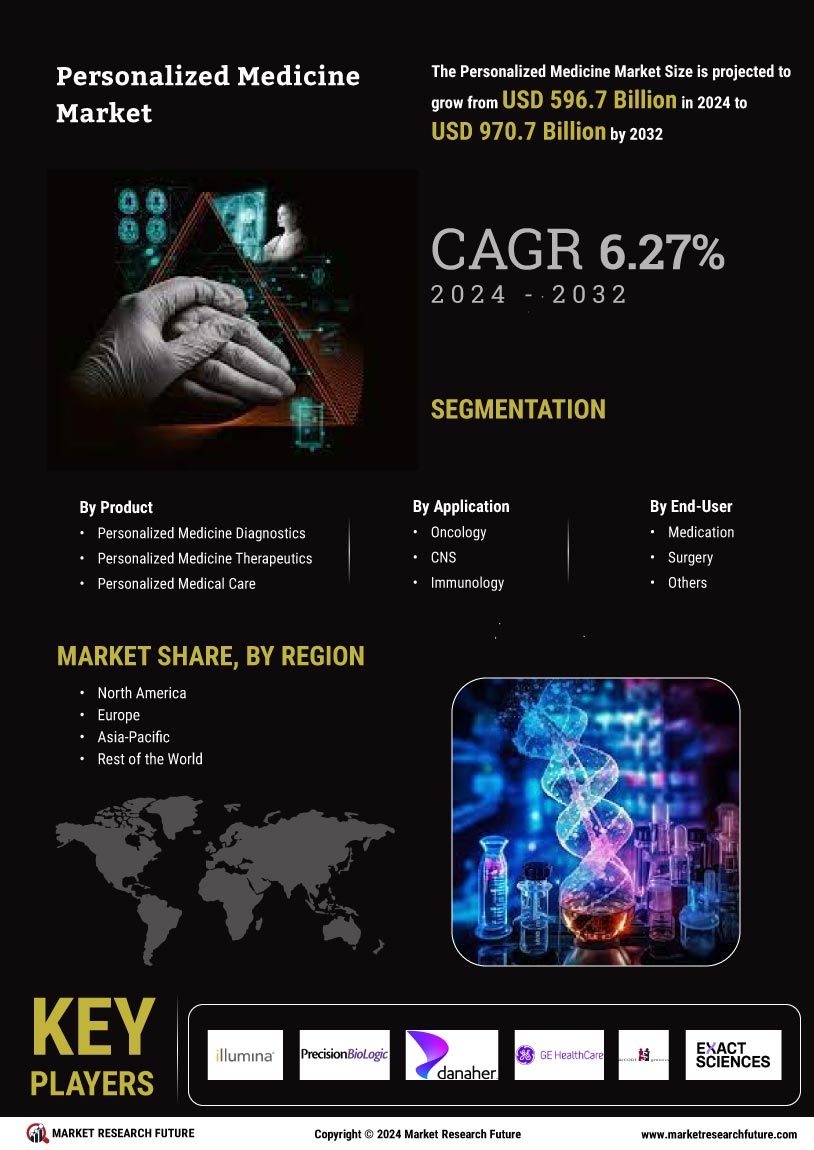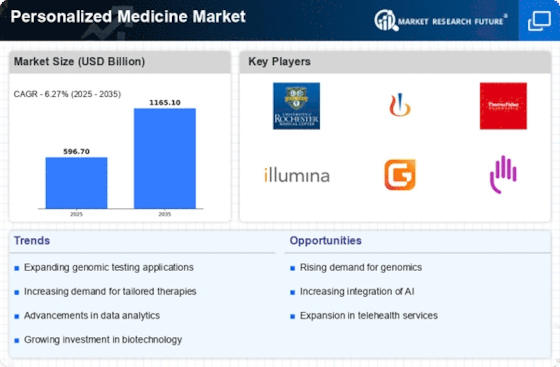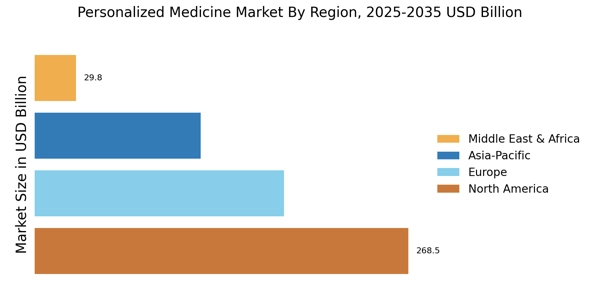Supportive Regulatory Environment
A supportive regulatory environment is essential for the advancement of the Personalized Medicine Market. Regulatory agencies are increasingly recognizing the importance of personalized therapies and are streamlining approval processes for innovative treatments. Initiatives aimed at expediting the review of personalized medicine products are likely to enhance market access and encourage investment in this sector. For instance, the FDA has established programs to facilitate the development of breakthrough therapies, which could significantly impact the availability of personalized treatments. As regulatory frameworks evolve to support innovation, the Personalized Medicine Market is expected to flourish, fostering the development of new therapies that meet the needs of diverse patient populations.
Rising Prevalence of Chronic Diseases
The increasing incidence of chronic diseases such as cancer, diabetes, and cardiovascular disorders is a primary driver of the Personalized Medicine Market. As these conditions become more prevalent, there is a growing demand for tailored treatment options that address individual patient needs. According to recent estimates, chronic diseases account for approximately 70% of all deaths worldwide, highlighting the urgent need for innovative therapeutic approaches. Personalized medicine offers the potential to enhance treatment efficacy and minimize adverse effects, thereby improving patient outcomes. This shift towards individualized care is likely to propel the growth of the Personalized Medicine Market, as healthcare providers seek to implement more effective strategies for managing chronic conditions.
Increased Patient Awareness and Demand
The rising awareness among patients regarding personalized medicine is significantly impacting the Personalized Medicine Market. Patients are becoming more informed about their health conditions and the potential benefits of tailored therapies. This shift in patient perspective is fostering a demand for personalized treatment options that align with their individual health profiles. Surveys indicate that over 60% of patients express a preference for personalized therapies, reflecting a growing expectation for customized healthcare solutions. As patient demand continues to rise, healthcare providers are likely to adapt their practices to incorporate personalized medicine approaches, further driving the growth of the Personalized Medicine Market.
Technological Advancements in Diagnostics
Technological innovations in diagnostic tools are significantly influencing the Personalized Medicine Market. The development of advanced genomic sequencing technologies, such as next-generation sequencing (NGS), has revolutionized the ability to identify genetic mutations and biomarkers associated with various diseases. This progress enables healthcare professionals to tailor treatment plans based on a patient's unique genetic profile. The market for molecular diagnostics is projected to reach USD 11 billion by 2026, reflecting the increasing reliance on precise diagnostic methods. As diagnostic capabilities continue to evolve, the Personalized Medicine Market is expected to expand, driven by the demand for more accurate and efficient patient assessments.
Growing Investment in Research and Development
Investment in research and development (R&D) is a crucial factor propelling the Personalized Medicine Market. Pharmaceutical companies and biotechnology firms are increasingly allocating resources to discover and develop personalized therapies. In 2025, R&D spending in the biopharmaceutical sector is anticipated to exceed USD 200 billion, underscoring the commitment to innovation in personalized medicine. This financial commitment is likely to yield breakthroughs in drug development, enabling the creation of targeted therapies that cater to specific patient populations. As R&D efforts intensify, the Personalized Medicine Market is poised for substantial growth, driven by the introduction of novel treatment options that enhance patient care.

















